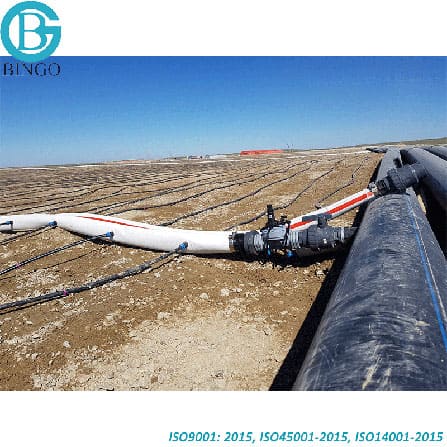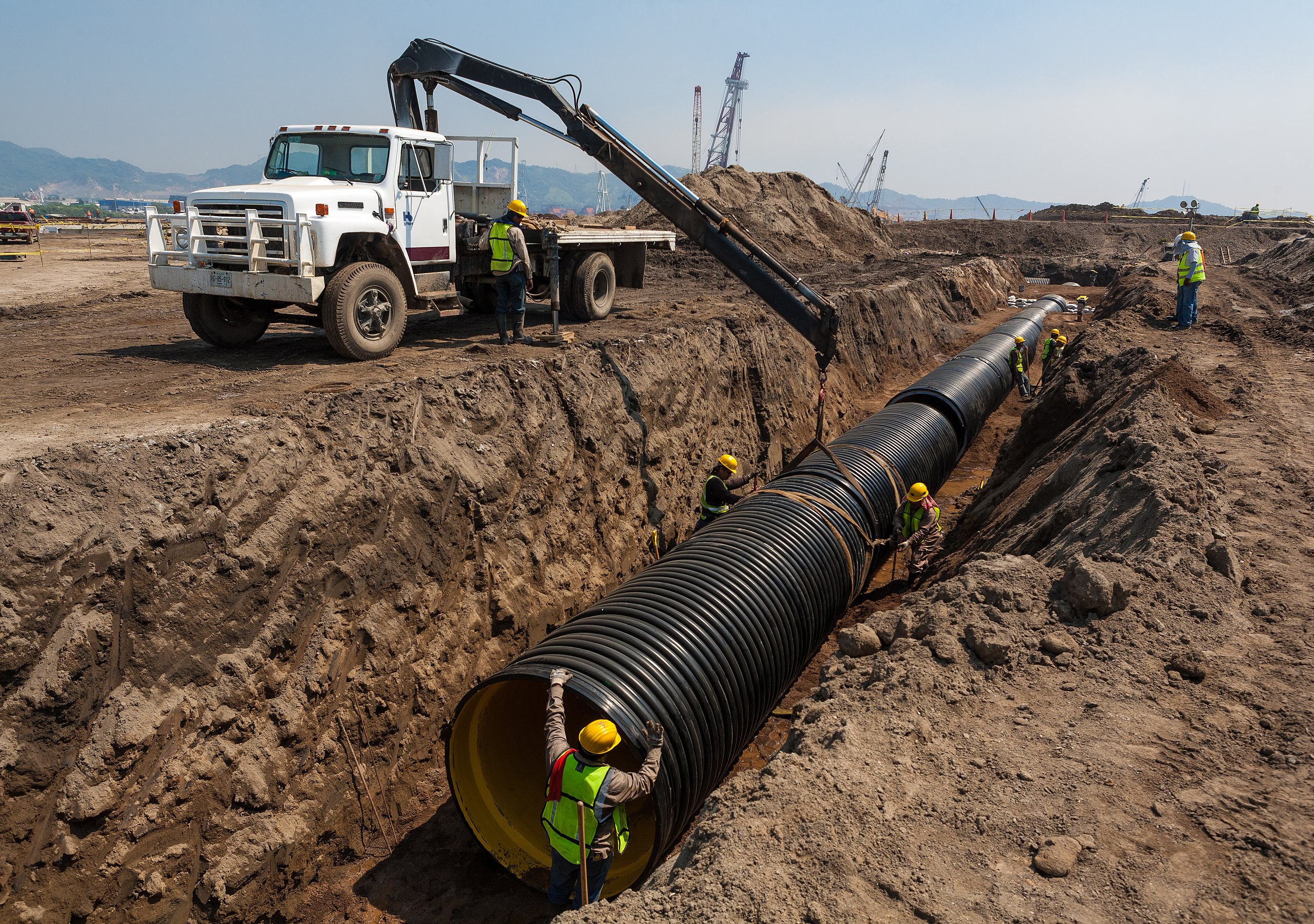Why Texas hdpe pipe manufacturer Is Leading in Quality Production
Recognizing the Trick Conveniences of HDPE Pipeline for Water and Wastewater Monitoring
The use of HDPE pipe in water and wastewater monitoring provides various benefits that warrant factor to consider. Its exceptional sturdiness and long life-span make it a recommended option for lots of jobs. Additionally, the product's resistance to rust and chemical damage boosts its dependability in different atmospheres. However, the advantages prolong past just longevity and resistance. Exploring its cost-effectiveness and environmental effect reveals a lot more compelling reasons for its widespread adoption in modern facilities
Extraordinary Toughness and Durability

HDPE pipe stands out for its exceptional sturdiness and longevity, making it a favored choice in water monitoring systems. Constructed from high-density polyethylene, these pipes can endure considerable stress and tension, guaranteeing reputable performance in time. Their robust nature enables them to endure extreme environmental conditions, including temperature changes and dirt activities, which can cause various other products to fall short.
The life-span of HDPE pipelines commonly surpasses half a century, giving a cost-effective remedy for districts and sectors alike. Additionally, the product's light-weight residential or commercial properties streamline setup, decreasing labor expenses and timeframes. This sturdiness reduces the demand for constant repairs or substitutes, further boosting its economic allure.
In water management applications, the reliability of HDPE pipes indicates fewer disturbances and improved service connection, making them important to sustainable facilities advancement. The combination of sturdiness and durability solidifies HDPE's duty as a keystone in efficient water management options.

Resistance to Deterioration and Chemical Damage
While lots of materials yield to rust and chemical damages over time, HDPE pipelines exhibit impressive resistance, making them optimal for different water management applications. This resilience stems from the molecular structure of high-density polyethylene, which is naturally non-reactive and does not corrode like metals or deteriorate from direct exposure to severe chemicals. As a result, HDPE is extremely effective in atmospheres with hostile materials, such as wastewater systems that may consist of acids, bases, and organic solvents.
Furthermore, HDPE pipes can stand up to environmental elements such as soil acidity and saline problems, better boosting their viability for varied applications (Texas hdpe pipe manufacturer). Their capability to maintain structural stability with time minimizes the threat of leaks and failures, which is vital in making sure the safety and security and dependability of water distribution and wastewater management systems. Consequently, the resistance to rust and chemical damage substantially adds to the overall efficiency and longevity of HDPE piping services
Cost-Effectiveness and Financial Advantages
When taking into consideration the monetary effects of water monitoring systems, the cost-effectiveness of HDPE pipes becomes noticeable. These pipes provide reduced installment and maintenance prices contrasted to standard materials like steel or concrete. Their lightweight nature simplifies transportation and setup, causing lowered labor expenses. Furthermore, HDPE pipes show a long life expectancy, frequently exceeding 50 years, which translates to less substitutes and long-lasting cost savings.
The resistance of HDPE to deterioration and chemical damages minimizes the requirement for pricey repair work and replacements. The pipes also support efficient water flow, decreasing energy expenses related to pumping systems. By mitigating leaks and water loss, HDPE pipelines contribute to considerable financial benefits for towns and industries alike. On the whole, the first investment in HDPE piping can produce significant financial returns over the life expectancy of the water management system, making it a prudent option for sustainable infrastructure growth.
Ecological Sustainability and Minimized Influence

Versatility and Flexibility in Installment
Due to their one-of-a-kind properties, HDPE pipes use exceptional flexibility and adaptability in setup, making them ideal for a vast array of applications. Their light-weight nature permits easier handling and transport, reducing labor expenses and installation time. HDPE pipelines can be curved and formed to fit numerous terrains and job demands, which is especially valuable in challenging environments.
In addition, their resistance to corrosion and chemical damages permits for installation in diverse setups without the requirement for specialized safety layers. The capability to fuse joints produces a continuous, leak-free system, improving the overall stability and integrity of the setup. HDPE's versatility also accommodates ground movement, lowering the risk of damage in locations susceptible to moving soil. Generally, these attributes make HDPE pipes not just flexible however additionally a favored choice for water and wastewater administration systems.
Often Asked Inquiries
Just How Does HDPE Pipeline Contrast to PVC in Water Monitoring Applications?
HDPE pipeline uses exceptional flexibility, resistance to corrosion, and sturdiness contrasted to PVC. Its lighter weight assists in much easier installation, while its lengthy life-span lowers replacement costs, making HDPE a preferred choice in water management applications.
What Is the Life-span of HDPE Water Lines Under Regular Conditions?
Under common conditions, HDPE pipelines can have a life-span varying from 50 to 100 years. Their toughness and resistance to corrosion add to their long-term efficiency in different applications, making them a reputable option for facilities.
Are HDPE Pipeline Recyclable After Their Life Span?
Yes, HDPE pipes are recyclable after their life span. custom hdpe pipe manufacturing Midland TX. They can be processed and repurposed into new items, considerably decreasing environmental influence and advertising sustainability within the market, making them a green selection for piping services
What Is the Setup Process for HDPE Water Lines?
The installation process for HDPE pipelines involves website preparation, trenching, pipeline blend or mechanical signing up with, backfilling, and pressure screening. Correct strategies guarantee a sturdy and efficient system for transporting water and wastewater efficiently.
Can HDPE Water Lines Be Used for Both Potable and Non-Potable Water Systems?
Yes, HDPE pipes can be used for both potable and non-potable water supply. Their adaptability, durability, and resistance to deterioration make them appropriate for numerous applications, ensuring secure and effective transport of water in various contexts.